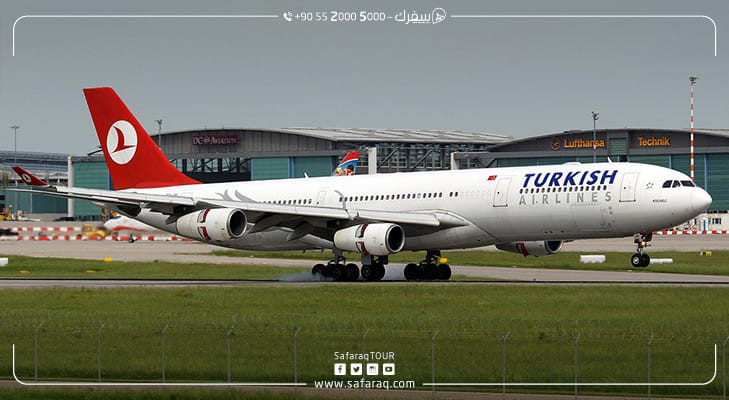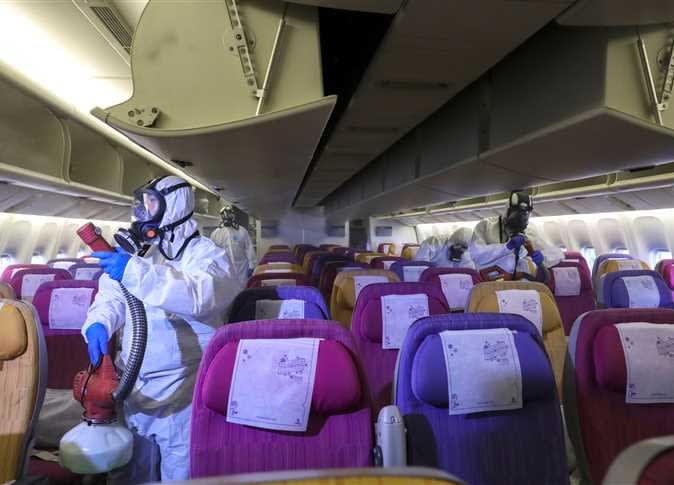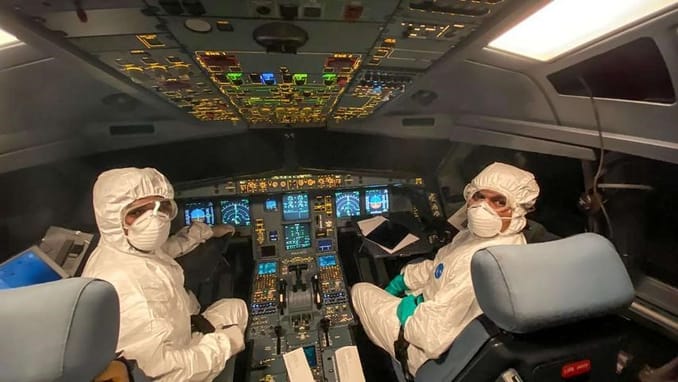Important Recommendations Imposed at Airports Under Corona

How has Coronavirus Affected Airports and Aircraft?
As life gradually returned to normal after the Coronavirus, and with the organization of an official programme of flight schedules at airports, a package of measures had to be taken at airports under Corona to avoid coronavirus infection.
As the start date for foreign flights in Turkey approaches, actions at airports and aircraft are of great importance.
Turkish experts focused on the need to take preventive measures against the Coronavirus necessary for travellers, including staying away from direct contact between travellers and not engaging in long conversations, to mitigate the transmission of coronavirus infection.
Turkish experts stress the great role of onboard filters, which allow the recycling of fresh air in the aircraft to keep the plane clean from all infections and epidemics.
"Airlines and aircraft management are responsible for providing clean aircraft and seats during successive flights," said Professor Muzaffer Cetin Koc, the Aviation Medicine Association president.
"More attention has been paid to disinfection, cabin air filtration, water and food storage, toilet cleaning and waste collection," stresses Cetin Koc.
"There must be a consensus between the environmental control system on aircraft cleanliness and the US Civil Aviation Regulatory Regulations (FAA)," he said.
"In-flight clearance studies are currently being implemented, by WHO health laws and ISO standards."
"The environmental conditions of toxic gases, microbial particles, allergens and insects must be taken into account during flights, as well as the diseases that can be transmitted through passengers and crew," said Cetin Koc.
"It is well known that the main ways to transmit diseases are direct contact with patients, the use of the same tools by several people, inhalation of microbial particles in the air, insect bites and disease-carrying flies, and the eating of food with microbes," said Cetin Koc, recalling how infections are avoided.
He noted the importance of using HEPA filters onboard, which play a major role in the process of cleaning up the air for passengers by filtering dust, chemical and microbial particles into the cabin air by 95 % and more."

What are the Most Polluted Places Onboard?
Referring to the prohibition of some cases in which the virus is rapidly transmitted from flying, Cetin Koc says, "Passengers with open wounds or who transmit the infection through breathing, coughing and sneezing are referred for medical examination, after which they are banned if necessary."
The Turkish professor thinks that it is necessary to clear the aircraft from within, as follows:
- Take into account the scanning of carpets, seat fabrics, trays, toilets and tubs on board with disinfectants.
- Clean both cabin air and materials inside the aircraft using aerosol sprays, UV rays and steam
In addition, he focused on keeping airports clean, especially from rat insects.
He stressed that aircraft that work continuously must undergo 60 to 90 minutes of cleaning during each flight, with extensive cleaning at 1-3 months intervals.
He called for ensuring that pillows distributed in rubber bottles were clean on aircraft, as well as blankets, earphones and one-time cups.
According to Turkish Professor Cetin Koc, "Some of the most polluted places onboard are toilet door handles, seat parts and headrest in seats, folding rear trays, seat belts and ground carpets."

Some Guidelines for Protection Against Coronavirus in Aircraft
Yilmaz points out that several pieces of research from Emory University, the Georgia Institute of Technology, and Boeing stress that frequent interaction between passengers and leaving them to their seats violates the rules of cleanliness onboard.
"One of the results of the research was that people sitting in seats next to a window, as well as people trying to commit not to leave their seats during the trip, were at lower risk of developing the disease."
To reduce the number of airport casualties, Yilmaz provides some guidance for travel through airports under the Coronavirus, including:
- Keep hands away from the eye, face, and surfaces that all passengers can touch
- Don't touch anything onboard
- Do not confront anyone onboard, especially the passenger next to you.
- Be careful to cleanse your hands as much as possible.
- Do not remove the mask during the flight.
- Do not close the vents above the head.
- Take care to gargle at specific intervals with special fluids to help kill germs, and maintain throat moisture, especially on long journeys.
- Vitamins should be taken a few days before the trip to strengthen the immune system.
- Do not use pillows and blankets distributed by the cabin crew.

Edited by Safaraq Tourism
Did you like our topic? You can share it with your friends
Featured tourist services
We offer top tourist services with the highest standards of quality and luxury with 24/7 follow-up.

Flight reservations

Tourist programs

Hotels and Resorts

Car Reservation

Group Tours

VIP Services
Subscribe To Our Newsletter
Find More About The Latest Safaraq























 Home
Home




